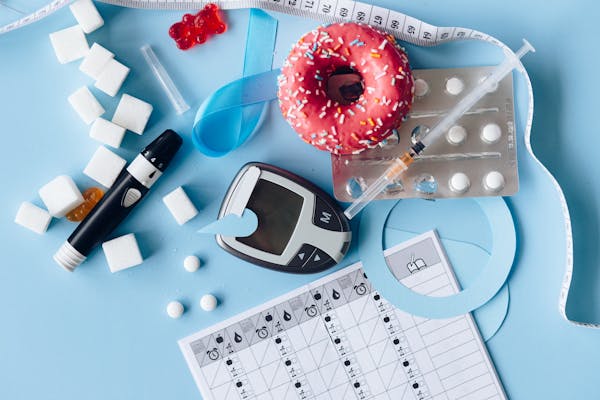Why perfectionism is the enemy of progress — and well-being
[ad_1]

The French author Voltaire at the time famously mentioned, “The great is the enemy of the very good.” Or a thing like that, simply because there appears to be to be some quibbling about the exact translation. But regardless, the sentiment is an significant a single. Why? Because perfectionism does not direct to contentment, and it can prevent us from living a lifestyle that is, really frankly, great enough.
Perfectionists have a tendency to have a lot less self-compassion (something far too several people today are previously deficient in), set unrealistic expectations for on their own (and maybe for some others) and have small self-esteem. All over again, not a recipe for joy.
In case you never believe that me, analysis displays that perfectionism is thought of a possibility aspect for despair, social anxiousness ailment, panic disorder, and obsessive-compulsive dysfunction. It also has hyperlinks to generalized anxiousness problem and publish-traumatic anxiety condition. It is also a hazard issue for consuming ailments and, once anyone has an consuming condition, perfectionistic tendencies make it extra challenging to recuperate.
But wait, there is extra. Research also implies that when anyone is dissatisfied with their overall body, perfectionism is possible what drives them to adopt dieting and other disordered eating behaviors, in particular if they imagine that their self-worth lies in their actual physical look. (I know…shocking.) Studies of interventions that handle perfectionism exhibit that they can be an helpful way to minimize disordered having.
But is perfectionism normally bad? Not automatically.

Sorts of perfectionism
The Psychology Now post, “Which type of perfectionist are you?” talks about adaptive and maladaptive forms of perfectionism:
- Adaptive perfectionists attempt for results, have superior criteria, and get items accomplished on time – but they also do the job in just the boundaries of their strengths and weaknesses.
- Maladaptive perfectionists are so fixated on getting “perfect” that nothing they do is ever good enough and they may keep away from certain duties or routines mainly because they concern they will not do them perfectly.
The report also mentions a further idea that there are a few varieties of perfectionism: self-oriented, other-oriented and socially recommended.
- Self-oriented perfectionism is identical to adaptive perfectionism, but it is also associated with risk of eating problems.
- Other-oriented perfectionism implies you hold other people today to quite large benchmarks and are very judgmental and significant of other people’s performances.
- Socially recommended perfectionism is when you feel force to be great in everything you do, and certainly your self-worth is tangled up in these unrealistically significant standards. This can lead to a ton of effectiveness stress.
Raise your hand if you can identify all three of these perfectionist forms among your friends, family or co-employees – and possibly in your self. I come to feel fortuitous that though I am a perfectionist, my tendencies skew extra towards self-oriented and adaptive. That stated, I’m occasionally careful about seeking some thing new if I really don’t think I’ll do it very well. And if I discover a typo in a little something I have composed, regardless of hoping hard to sleuth them out, I experience momentarily ill to my stomach…before I remind myself that I am watchful and conscientious and that absolutely everyone helps make mistakes (this is exactly where a self-compassion apply arrives in helpful). Even so, I also locate that as I get older I care a whole lot considerably less about other people’s expectations!

Perfectionism on the increase
Regretably, perfectionism has been raising. A 2019 examine uncovered that amongst 1989 and 2016, cultural variations in the U.S., Canada and the Uk that emphasize “competitive individualism” have guide to a continuous raise in perfectionism between school pupils. The researcher saw raises in self-oriented, other-oriented and socially recommended perfectionism. And I somehow doubt that this trend is minimal to university students only.
Ironically, there is been analysis evaluating the pursuit of excellence with the pursuit of perfectionism, primarily amongst college college students, and found that pursuing perfection (so, striving to go earlier mentioned and outside of “excellence”) decreases daily life pleasure, will increase chance of melancholy, and in fact qualified prospects to reduce grades and educational functionality about time. It’s also a killer of creative imagination, considering that individuals who go after excellence continue being open to experience and are superior equipped to create unique views.

Perfectionism and eating plan culture
I will also say that I see a Large amount of perfectionism in my consumers, and a lot of it is tied to food plan culture. Specifically, the belief that if they never management their feeding on and their human body shape/sizing, they have failed and will be seen as failures by other individuals. These beliefs can nevertheless have a tenacious keep even when somebody intellectually is aware of that intentional pounds reduction isn’t sustainable, that fat does not equivalent well being, and that cultivating a much more tranquil marriage with food and their bodies would raise their well-getting. Here are some means I see this perfectionism manifesting:
- Black-or-white (aka all-or-absolutely nothing) imagining. This incorporates beliefs like “I have to try to eat flawlessly to be a wholesome eater” or “exercise does not ‘count’ if I never do it for at minimum 30 minutes” or “I ate when I was not hungry…I’m failing Intuitive Having.”
- Catastrophic wondering. This is worst-case-circumstance wondering. For illustration, “If I do not shed excess weight, I’m afraid my well being will suffer” or “I am frightened men and women will decide me since I obtained weight” or “If I allow for myself ice cream, I could take in the whole pint.”
- Likelihood overestimation. This is an amplification of catastrophic imagining. In other words, overestimating the likelihood that the worst-scenario state of affairs will materialize. This incorporates views like, “If I really don’t lose weight, I will get diabetes” or “When I go to that get together/go to my household, everyone is heading to decide me for attaining weight” or “If I permit myself ice cream, I will totally eat the whole pint.”
- Should really/should not statements. Ahh…so quite a few shoulds. “I need to be equipped to regulate my body weight.” “I must weigh what I weighed 30 many years back.” “I should physical exercise every single working day.” “I need to be able to stop eating when I’m complete.” “I should not eat for comfort.”
Of training course, these manifestations can be real of perfectionism in any context, not just in the context of diet regime society.

Perfectionism, procrastination, paralysis
When we have exacting criteria for ourselves, we could obtain ourselves procrastinating – delaying prospective failure. Or, we might develop into paralyzed, unable to come to a decision on a system of action simply because it may possibly not be the “perfect” class of motion (or, even if it is, WE may well are unsuccessful at it).
This is some thing see in numerous of my clients. They do not do their among session “homework,” or they place it off right up until the working day before we next meet. Of training course, we converse about this (with zero judgement on my portion), and normally it will come down to panic of undertaking intuitive ingesting “wrong,” comparable to how they truly feel they have “failed” at dieting. So they place off even trying.
I also see customers making an attempt to pick the “perfect” food items to satisfy them in the second, then because they simply cannot come to a decision (paralysis) they just grab regardless of what, or even hold off consuming to the issue that they turn out to be ravenously hungry (procrastination). A very good reminder that in some cases fantastic sufficient is great enough.
Or, they could possibly not fill out their pre-session “how did the final two months go” sort simply because they are not absolutely sure of the “perfect” issue to say.
I see you, I hear you, I truly feel you, my pricey perfectionists!

The self-compassion “cure”
There can be a great deal of disgrace tied up in perfectionism, both equally disgrace when we sense we didn’t do a little something very well enough (state disgrace) and disgrace that we experience like we are never great more than enough (trait disgrace). Self-compassion is the antidote to shame. When self-compassion goes up, shame goes down, and vice versa.
As psychologist Christopher Germer, co-founder of the Heart for Aware Self-Compassion (CMSC), defined it in a the latest on the internet workshop I took from him and CMSC co-founder Kristen Neff, shame will come from the worry that we won’t be cherished or are not worthy of really like. (And if you are a perfectionist, that could glance like “If I’m not great, no one particular will appreciate me.) If you imagine a coin, disgrace is on 1 aspect, but if you flip it more than you will see the anxiety of not becoming beloved on the other.
Exploration demonstrates particularly that self-compassion can decrease perfectionism, specifically maladaptive perfectionism. Ironically, exploration also reveals that perfectionists wrestle to respond to by themselves with self-compassion in component simply because they obtain it complicated. (If you are a perfectionist, primarily a maladaptive perfectionist, and you locate that some thing feels challenging, what do you probably do? Steer clear of making an attempt it once more!)
Aspect of self-compassion is recognizing that our demands are just as vital as others’ will needs, because one particular core element of self-compassion is frequent humanity (the other two are self-kindness and mindfulness).
This can be tricky to fully take and internalize, specially for women, who are socialized to be tender and nurturing and to set the desires of some others to start with. Introducing socially prescribed perfectionism to that can produce real fears that not placing other people’s needs to start with implies “I’m a failure and will be judged.”
As Neff claims, self-compassion presents ourselves permission to do a U-transform and show ourselves the treatment and kindness we give other individuals.

Self-compassion vs. self-esteem
Perfectionists may derive their self-esteem from currently being best, which generally includes becoming the most effective, or the top of the heap. So when, inevitably, they are not best, or another person is perceived as far better, then their self-esteem can take a nose dive. Which is why self-compassion is far better than self-esteem – self-esteem is a truthful-climate friend, although self-compassion is a steady, consistent close friend. Self-esteem is predicated on staying far better than everybody, although self-compassion is predicated on the fact that we are all human, that we will all mess up sometimes, and that we are all deserving as we are.
When you are having a challenging time, perhaps simply because you produced a blunder or “screwed up,” can you make room for these thoughts? Can you see that even though that oversight is a part of you, it is only a single section of you? That is tender self-compassion. But fierce self-compassion can support, also, by serving to us stand up for ourselves. For illustration:
- Placing boundaries around our time and electrical power so we can do our best (likely for exceptional, not ideal) at what’s most crucial to us with out burning out. (Burnout is a genuine threat of perfectionism.)
- Conference our have requirements, mainly because we depend, too. (This also allows us be additional resilient.)
- Being aware of that we are worthy (Interval. Total stop.) irrespective of if we don’t evaluate up to someone’s (fairly potentially unfair or unrealistic) benchmarks.
Now, some self-compassion resources
The links in this write-up are to other posts I have published about self-compassion, so I propose you examine them out. If you want even more aid checking out self-compassion, here are some outstanding resources:
This publish consists of Amazon Affiliate back links. As an Amazon Associate I gain from qualifying purchases.
Carrie Dennett is a Pacific Northwest-based registered dietitian nutritionist, freelance writer, intuitive having counselor, author, and speaker. Her superpowers include things like busting diet myths and empowering women of all ages to come to feel much better in their bodies and make food items decisions that assistance satisfaction, diet and wellbeing.
 Print This Article
Print This Article
[ad_2]
Supply backlink




